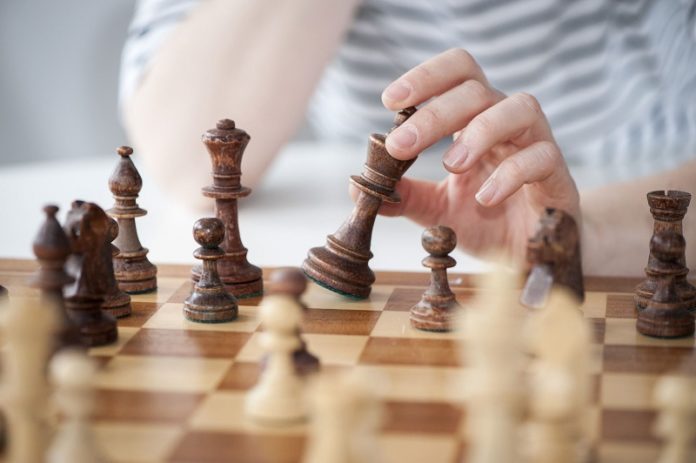A new study published recently in the journal Psychological Science suggests that female chess players are not affected by negative stereotypes about women’s chess abilities during competitive games.
The study conducted by the scientists from the University of Sheffield suggests, women playing against men perform better than expected based on their official chess ratings. Data gathered from 160,000 ranked chess players, is conversely with past discoveries on the marvel of generalization risk which have recommended that consciousness of negative generalizations can hamper ladies’ execution.
Monitoring a negative generalization is thought to make people more on edge, more reluctant, and less ready to stifle contrary contemplations – results that eventually hamper their capacity to play out the job needing to be done.
Since ladies are detectably underrepresented in the realm of focused chess, generalization danger might be particularly remarkable to ladies chess players. Past examinations have given some confirmation to generalization risk in chess, recommending that ladies were less inclined to win a match when they trusted they were playing a male rival.
To examine this wonder, in reality, Dr Stafford investigated information from standard competition chess amusements played between appraised players between January 2008 and August 2015. The FIDE rating framework ceaselessly consolidates amusement results to refresh players’ appraisals. These evaluations can be utilized to foresee who will win in a match between any two players. Altogether, the investigations included information from 150,977 men and 16,158 ladies playing in 5,558,110 amusements.
Generally speaking, men had a somewhat higher normal FIDE rating than ladies. In any case, the amusement results showed that ladies won matches against men more regularly than would have been anticipated given every player’s evaluating. This example held over the entire scope of rating contrasts.
Ladies beat desires when playing a man contrasted and when they played against other ladies, a finding that runs in opposition to the negative impact that one would expect because of generalization risk.
Dr Tom Stafford, from the University of Sheffield’s Department of Psychology, who led the study, said, “These findings show that even famous psychological phenomena may not be present all the time. Factors other than stereotype threat appear to be more important in determining men and women’s tournament chess performance.”
“Looking at such a large real-world sample allows us a lot of confidence that our numbers are reliable.”
“The news is good for female chess players, of whom there are exploding numbers. Although discrimination is real and pervasive, women playing tournament chess do not seem to be at a disadvantage when paired with men.”
“This study of one social attitude in one domain—gender stereotypes in chess—does nothing to disprove the reality of discrimination generally, but it does suggest that this one mechanism, stereotype threat, may be more limited in its applicability than one might conclude from reading the experimental literature alone.”
